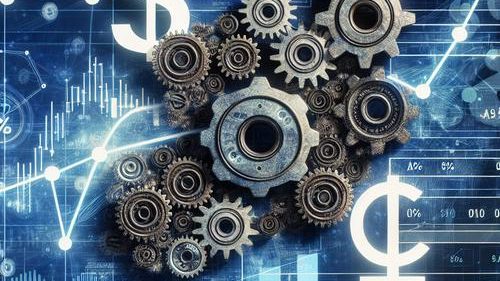Is your accounting team tired of drowning in paperwork? Do manual data entry and chasing approvals eat up valuable time? You’re not alone. Many businesses face these challenges. But there’s good news. Artificial Intelligence (AI) is changing the game for accounting professionals. Think of AI as a super-smart assistant for your accounting team. It helps automate tasks that are often repetitive and time-consuming. This also reduces the chance of human error.
This article uncovers practical ways AI streamlines everyday accounting workflows. We’ll explore specific trends in AI accounting workflow automation. We’ll look beyond general ideas. We will focus on how AI makes common tasks faster and better. This change frees up skilled accountants to focus on more strategic work. They can spend more time on financial analysis and advising the business.

Supercharging Invoice Handling with AI
One of the most time-consuming tasks in accounting is invoice processing. Traditionally, this involves manual data entry from paper or PDF invoices. Then, it requires matching them to purchase orders and getting approvals. This process can be slow and error-prone. However, AI for invoice processing is transforming this area dramatically. AI-powered systems go far beyond simple scanning. They use Intelligent Document Processing (IDP). This means the AI doesn’t just see characters. It understands the invoice’s structure. It accurately extracts key information. This includes vendor names, invoice numbers, dates, amounts, and line-item details. It can do this even from varied formats and layouts without needing templates.
Once data is extracted, AI can automate the three-way matching process. It compares the invoice against the purchase order and the goods receipt note. This ensures everything lines up before payment is approved. If discrepancies arise, AI can flag them for human review. This significantly speeds up the accounts payable (AP) cycle. It also reduces the risk of paying incorrect or fraudulent invoices. Some AI systems can even learn approval workflows. They route invoices to the correct person based on predefined rules or past behavior. Advanced AI tools also offer sophisticated fraud detection. They analyze patterns to identify duplicate invoices or unusual vendor activity. This adds another layer of security to your financial operations.
Many global companies are already benefiting. For example, Siemens, a technology powerhouse, has been leveraging AI to digitize and automate its procure-to-pay processes. According to industry reports and discussions around their digital transformation, such initiatives help them handle millions of invoices with greater efficiency and accuracy. Companies like Siemens use these technologies to streamline their global operations. This enhances visibility and control over their AP workflows, contributing to significant cost savings and improved supplier relationships. You can read more about general trends in AP automation on sites like CFO.com.
Making Account Reconciliation a Breeze with AI
Account reconciliation is another critical but often tedious accounting task. It involves comparing internal financial records against external statements. Think bank statements, credit card statements, or vendor accounts. The goal is to ensure records match and identify any discrepancies. Manually reconciling hundreds or thousands of transactions is a huge job. It is especially challenging for large organizations. This is where automated account reconciliation powered by AI comes in.
AI systems can process vast amounts of transaction data in minutes. This is much faster than any human. They use smart algorithms to match transactions across different datasets. AI can handle complex matching rules that would be difficult to manage manually. It can also identify partial matches and suggest potential pairings. This reduces the number of exceptions needing manual investigation. A key trend is the shift towards continuous reconciliation. Instead of waiting for month-end, AI can perform reconciliations daily or even in real-time. This provides a more current view of financial positions. It also allows businesses to identify and resolve issues much faster.
AI also excels at anomaly detection during reconciliation. It can learn normal transaction patterns. Then, it flags unusual activities or outliers that might indicate errors or potential fraud. This proactive approach helps maintain data integrity and strengthens internal controls. For instance, Coca-Cola European Partners (CCEP) has successfully implemented AI-driven solutions for financial automation. As detailed in a case study by BlackLine, CCEP uses their platform for automated account reconciliation. This has helped them streamline their financial close process. They have reduced manual effort and improved the accuracy and timeliness of their financial reporting across their extensive operations.
Beyond the Basics: AI in Expense Audits and Financial Forecasting
AI’s impact on accounting workflows extends beyond invoices and reconciliations. We are seeing exciting developments in other areas too. These emerging applications promise even greater efficiency and smarter financial management. They showcase the versatility of AI accounting workflow automation. Let’s look at a couple of these less-discussed but highly practical uses.
First, consider expense management. AI is making expense report auditing much more effective. AI algorithms can automatically scan expense reports. They check for compliance with company policies. They can identify out-of-policy expenses, duplicate claims, or receipts that don’t look right. This saves auditors significant time. It also ensures consistent policy enforcement. For example, large organizations like Microsoft are known to use AI tools to help audit employee expense reports internally. This improves compliance and reduces fraudulent claims far more quickly than manual reviews ever could.
Second, AI is proving invaluable for predictive analytics in finance. AI models can analyze historical financial data. They combine this with market trends and other relevant information. This helps them generate more accurate cash flow forecasts. Businesses can better anticipate future financial needs and make informed decisions. AI can also assist in risk assessment. It can identify potential credit risks from customers. It can even help auditors plan their work by highlighting areas of higher risk. For example, Unilever, a global consumer goods company, reportedly uses AI for sophisticated demand forecasting. While this directly impacts their supply chain, accurate demand forecasting is critical for financial planning, budgeting, and effective resource allocation, showcasing AI’s expansive role in overall financial health.
The Future is Automated: Embracing AI in Accounting
The message is clear: AI is no longer a futuristic concept in accounting. It’s a practical tool available today. It is already delivering significant benefits to businesses of all sizes. From streamlining AI for invoice processing to enabling real-time automated account reconciliation, AI helps reduce manual effort. It minimizes errors and frees up accountants for more strategic tasks. The ongoing advancements in AI accounting workflow automation mean we will only see more sophisticated and integrated solutions in the future. Embracing these technologies can lead to more efficient operations. It also provides deeper financial insights and a stronger competitive edge. If you haven’t explored how AI can transform your accounting workflows, now is the time to start. The future of accounting is intelligent, automated, and more insightful, thanks to AI.



